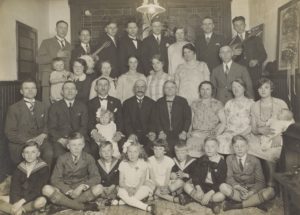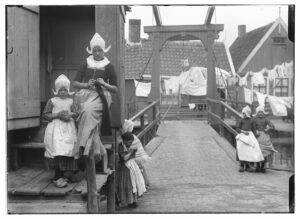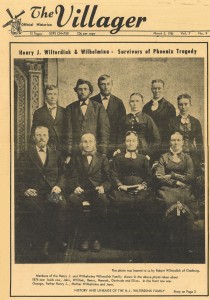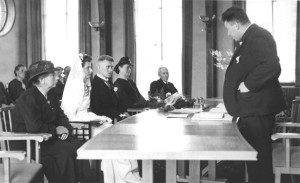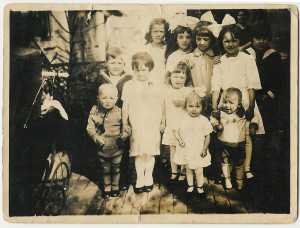Oom means "uncle." Like in English, the Dutch word oom is used for the brother of a parent, or the husband of the sister of a parent. There is no separate word for paternal or maternal uncle. You may encounter references to ooms in guardianship records, estate inventories, as specification of how witnesses are related to the main parties, and in many other types of records. Records do not usually differentiate between full and half uncles, or between uncles-by-blood or uncles-by-marriage. … [Read more...]
Dutch term – Kind, kinderen
A kind is a child, plural kinderen. You may come across the term in wills, guardian appointments or other types of notarial and court records. … [Read more...]
Dutch term – Broer, broeder
A broer or broeder (old spelling) is a brother. A half-brother is a halfbroer or broeder van halven bedde (brother of half a bed; old term). See the chart for other Dutch terms for relationships. … [Read more...]
Dutch term – Echtgenoot/Echtgenote
An echtgenoot is a male spouse. The female equivalent is echtgenote. You may encounter the term in death records, where someone is listed as the echtgenoot or echtgenote of someone else. The use of echtgenoot/echtgenote indicates that the spouse is currently living, otherwise the deceased would be listed as the weduwnaar [widower] or weduwe [widow]. … [Read more...]
Dutch term – Kleinkind
A kleinkind is a grandchild. The term literally translates to "small child." A kleinkind can be a kleindochter (granddaughter) or kleinzoon (grandson). … [Read more...]
